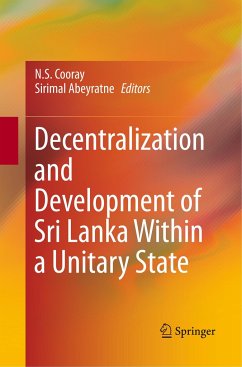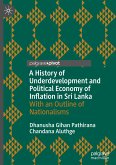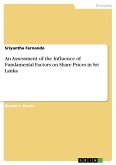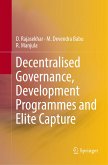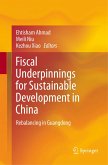This comprehensive volume provides uniquely diverse insights into various aspects of decentralization and development from both developed and developing countries, with special reference to Sri Lanka. For a quarter century, Sri Lanka was battered by its prolonged civil war, which ended in 2009, but has now achieved relative peace and stability. Having developed rapidly, Sri Lanka offers a classic example for developing countries. There is, however, a strong need, particularly in the context of postwar conflict, to formulate policies for reconciliation, peace building, and development at all levels-local, provincial, and national.
Decentralization itself is not a new subject; however, how to devolve power to local administrative levels within a unitary system and how to link the devolved power to make local administrative systems more conducive to development and provide better services for citizens are challenging tasks in many countries.
Taking into account the developmental, governance, and conciliatory needs and the sensitivity of central-local relations, this volume critically examines the local government systems in Sri Lanka. It also proposes a viable, effective and autonomous local-level administrative unit based, which draws on experiences from Japan and other countries, and identifies the role and functions of such a unit.
The book presents commissioned papers from a three-year research project undertaken by internationally respected experts with financial support by the Japan Society for the Promotion of Science (JSPS) under a Grant-in-Aid for Scientific Research.
Decentralization itself is not a new subject; however, how to devolve power to local administrative levels within a unitary system and how to link the devolved power to make local administrative systems more conducive to development and provide better services for citizens are challenging tasks in many countries.
Taking into account the developmental, governance, and conciliatory needs and the sensitivity of central-local relations, this volume critically examines the local government systems in Sri Lanka. It also proposes a viable, effective and autonomous local-level administrative unit based, which draws on experiences from Japan and other countries, and identifies the role and functions of such a unit.
The book presents commissioned papers from a three-year research project undertaken by internationally respected experts with financial support by the Japan Society for the Promotion of Science (JSPS) under a Grant-in-Aid for Scientific Research.

